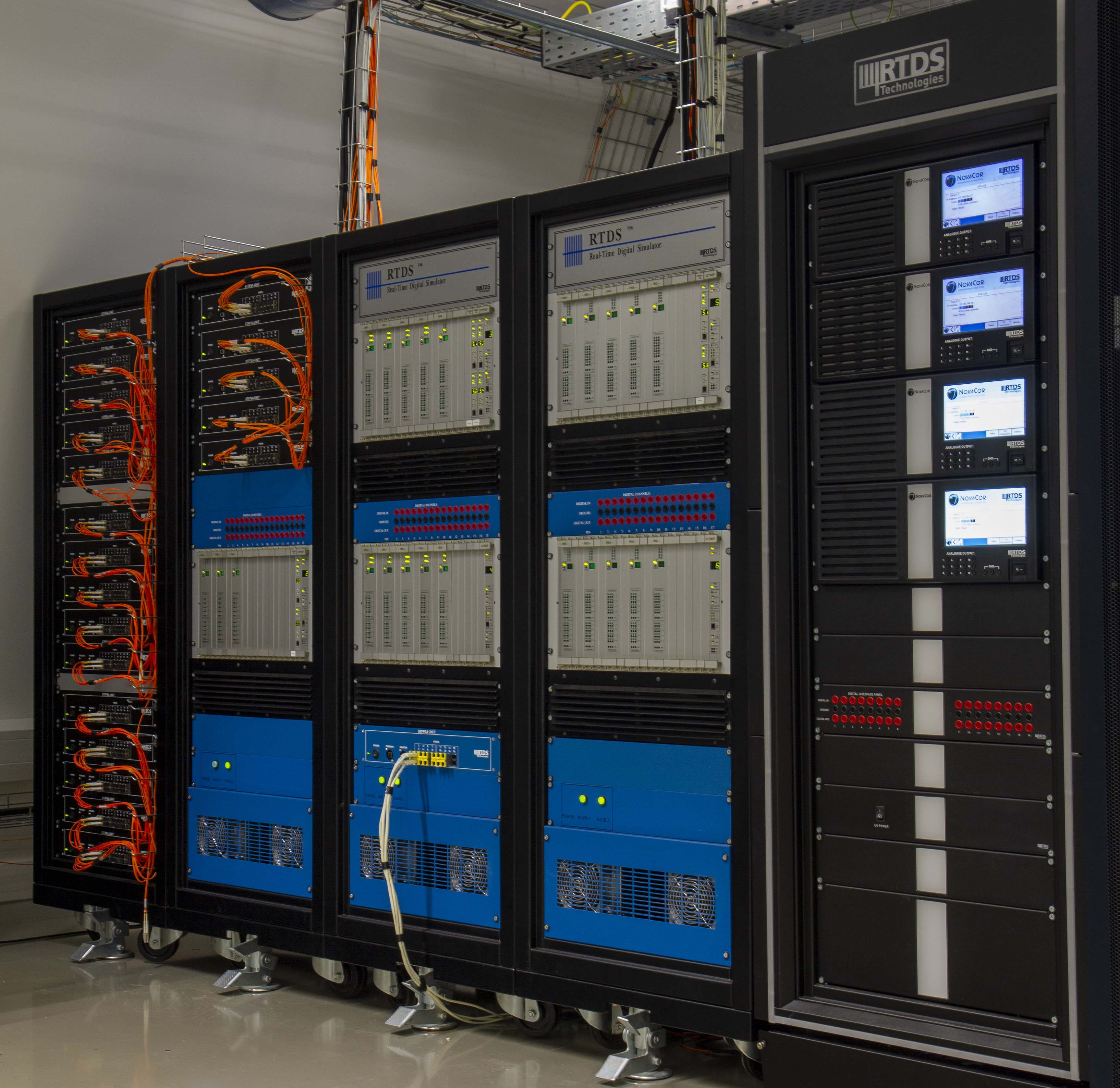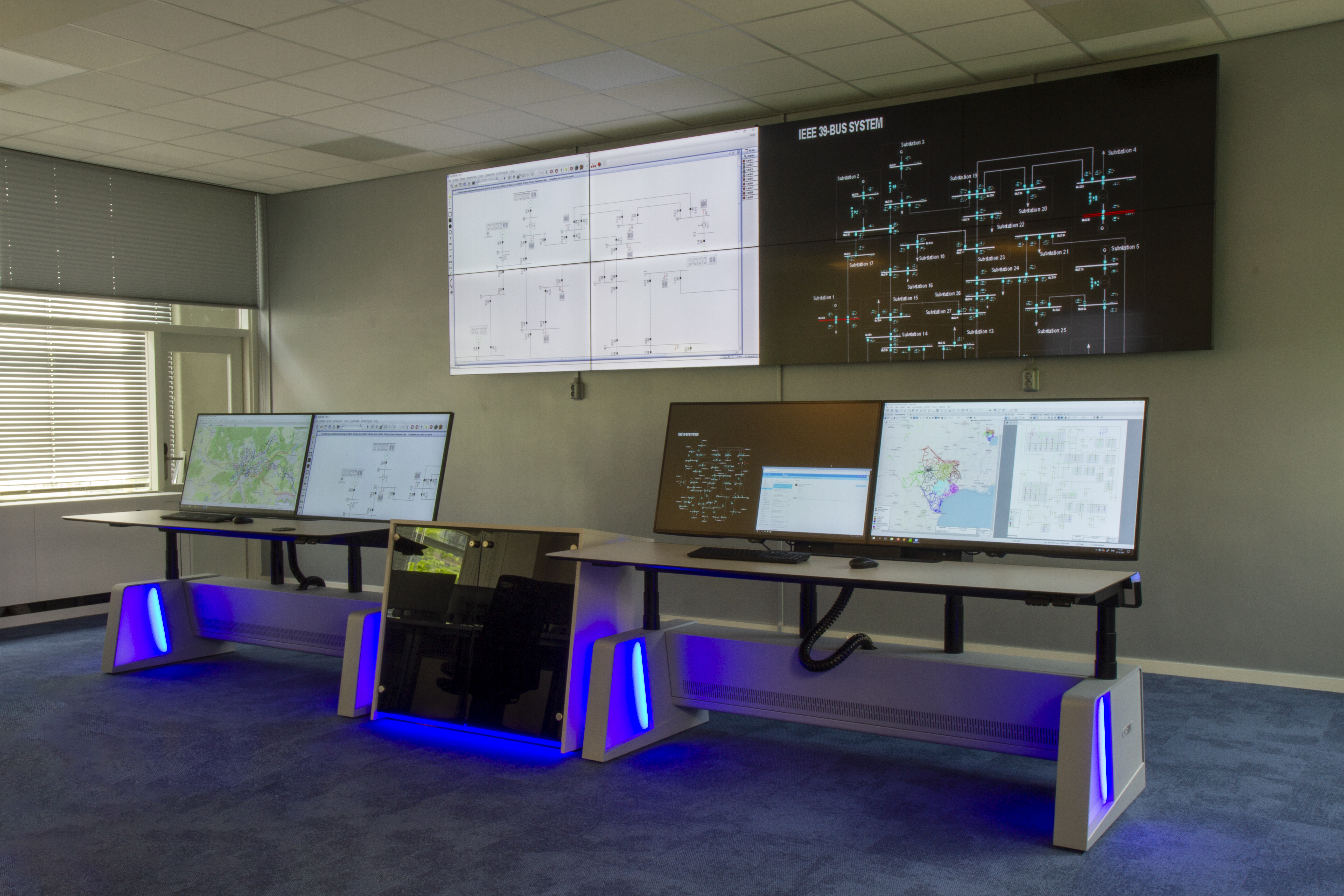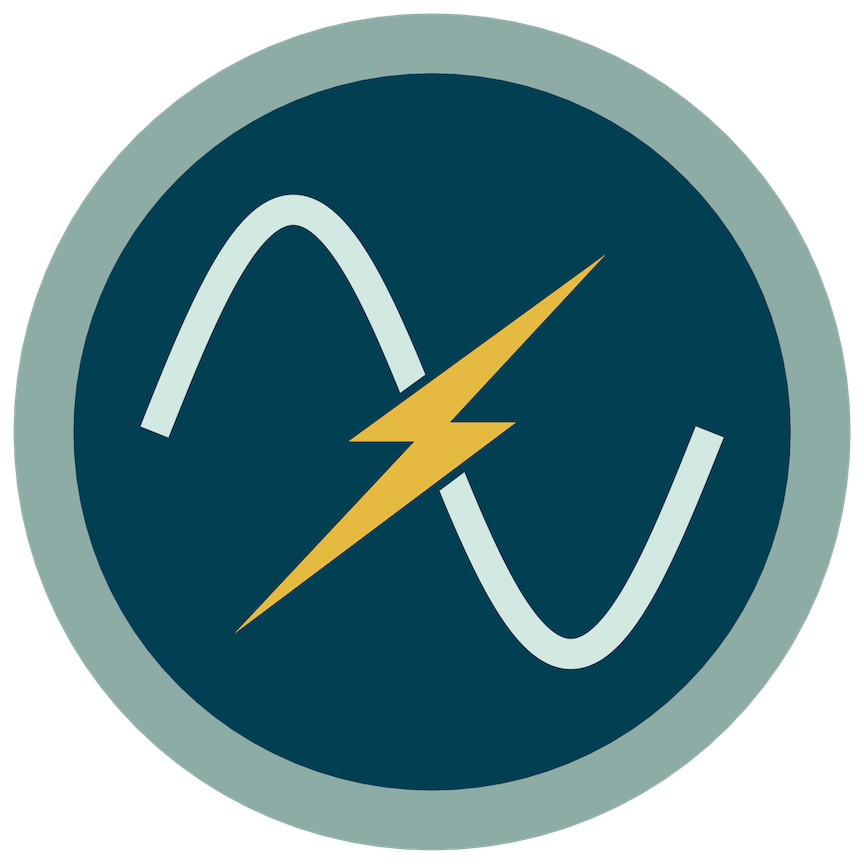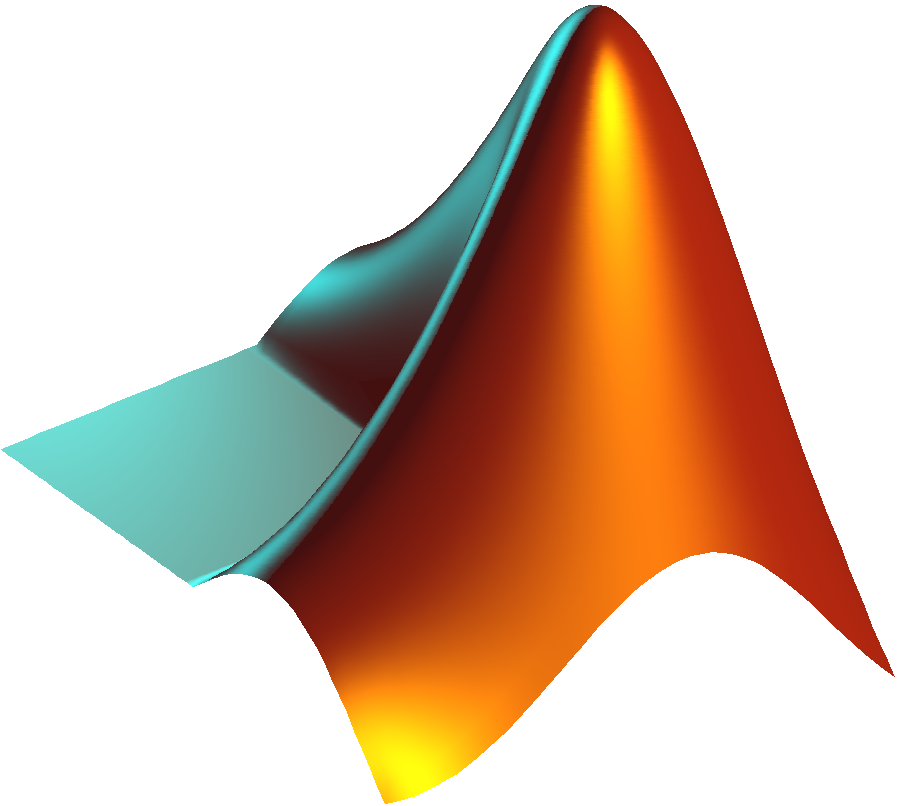Facilities
The IEPG group owns the following research facilities and laboratories for its research:
• Real-Time Digital Simulator Laboratory (RTDS) Lab
• Software Laboratories
• Control room of the Future
• Delft AI Energy lab
A Real-Time Digital Simulator Laboratory (RTDS Lab)
The RTDS Simulator allows to test protection and controls in real time, where an hour in the real world equals an hour in the simulator. Utilizing modular custom computing hardware and software, simulations performed encompass results from DC up to electromagnetic transients. Inherently, these results include information regarding the system load flow and transient stability, as well as that of harmonics and faster disturbances.

RTDS at TU Delft consists of 9 racks of which 5 are supplied with PB5 cards and 4 Novacor units, which are able to be used for real time simulations with a time step greater than 2µs. In hundreds of nanoseconds time step simulations, Modular Multilevel Converter (MMC) valve models can be simulated on the 20 FPGA units. Various other hardware can be connected through network based protocols, analogue and digital signals via the dedicated IO expansion cards present in the laboratory.
Applications include:
- Equipment can be thoroughly test-driven and customized.
- New power system network designs or upgrades can be evaluated and accurately tested.
- Black box real-world equipment (e.g. closed-source controllers) can be tested and integrated in larger test scenarios without having a model.
- Interoperability of multi-vendor installations can be validated
- Models and real implementations (products) of components can be compared
- Closed-loop testing of protective relays and control systems.
- Studying general AC system operation including behaviour of generation and transmission systems.
- Investigating dynamic power system equipment interaction.
- Studying interaction between integrated AC/DC systems.
- Testing of control system of converter based equipment.
- Integration and operation of distributed generation and renewables.
- Investigation and testing of SMART Grid initiatives including wide area protection and control.
Software Laboratories
IEPG applies several tools for power system analysis (generation, transmission, and distribution). Among them are commercial software packages like DIgSILENT PowerFactory, PSS/E, and PSCAD, which are used extensively in national and international research projects with industrial and academic partners. Open source tools like OpenModelica and ATP-EMTP are alternative tools applied for the development of user defined models and controllers. These tools are used in combination with Matlab, Python, Fortran, and C++, to create highly automated and integrated solutions for modelling, simulation, and data processing, as well as to allow the application of the most powerful state-of-the art algorithms for assessment of system performance and design of control and protection schemes.
The analysis of the steady-steady performance (power flow and optimal power flow) and slow dynamic phenomena (few miliseconds to minutes) of electrical power systems is conducted by using DIgSILENT PowerFactory, PSS/E, and OpenModelica, whereas fast dynamic phenomena (few micro seconds to miliseconds) are studied by using DIgSILENT PowerFactory, PSCAD, and ATP-EMTP.
DIgSILENT PowerFactory is used in the teaching activities of the course ET4113 Power System Dynamics, whereas OpenModelica and Pandapower are used in SET3065 Intelligent Electrical Power Grids. Matlab Simulink is the main tool used for the study of hybrid AC-DC systems in the course EE4545 Electrical Power Systems of the Future.
When the individual tools reach their limits, IEPG combines them into co-simulations. Using co-simulation, we can address problems larger in size and scope (such as integration of many distributed renewable resources) or the problems that are spanning across multi-energy carriers (such as integration of electricity and heat networks). Mosiak and HLA are the co-simulation master tools that are used by IEPG to pass the messages between the simulators and to synchronize the execution of the co-simulation. In one such example, IEPG used OMNET++ with grid simulation tools to study impact of delays and cyber-attacks on the grid. In another, we used MATPOWER in combination with grid simulation tools to study the interplay between electricity markets and the grid.
Control Room of the Future (CRoF)
The Control Room of the Future (CRoF) at TU Delft is a unique, future-ready, and multi-domain experimental setup used as a hub for research, development and demonstration of cyber secure, future-proof power grid technologies and system operator training. CRoF was developed based on state-of-the-art control centres for power system operation using real-time digital twins and industrial-grade operational technologies. We develop the technology for next generation power grid operation and cyber secure functionalities for operators of the future.

Delft AI Energy Lab
AI for sustainable, reliable and effective energy systems
Energy systems are the backbone of our modern society. It is of great importance that these systems are sustainable, reliable and effective now and in the future. There is strong expertise in this field on the TU Delft campus. The Delft AI Energy Lab investigates how new AI-based methods can contribute to the management of dynamic energy systems.
Therefore we combine ground-breaking machine learning with the reliable theory of the physical energy system. For example, it is possible with the AI technique 'neural networks' to model differential equations describing dynamics in areas such as fluid dynamics, and for predicting extreme, rare events. Delft AI Energy Lab investigates these promising methods for applicability for monitoring the 'health' of parts of energy systems, and for the early detection of threats.
The Delft AI Energy Lab is part of the TU Delft AI Labs programme.




